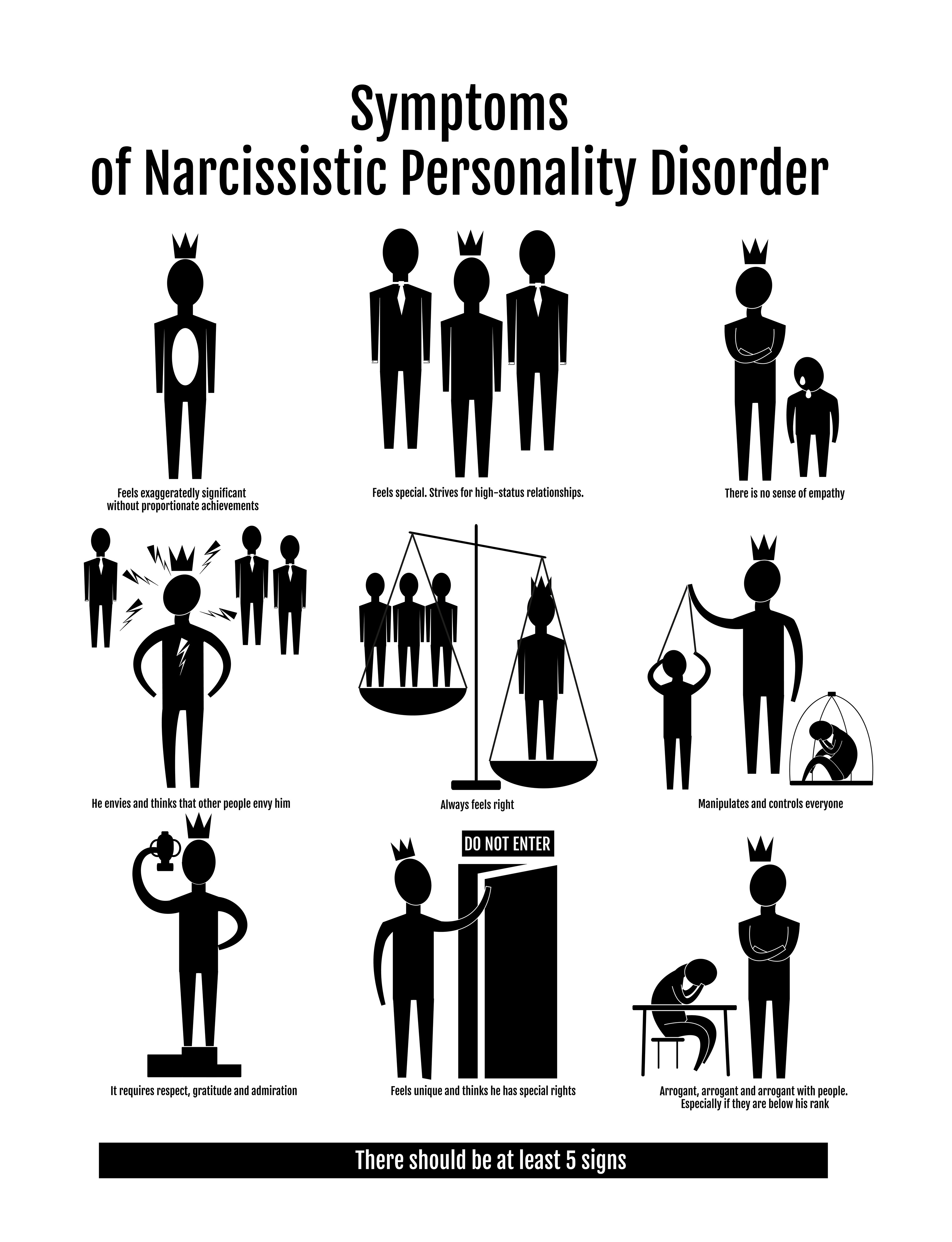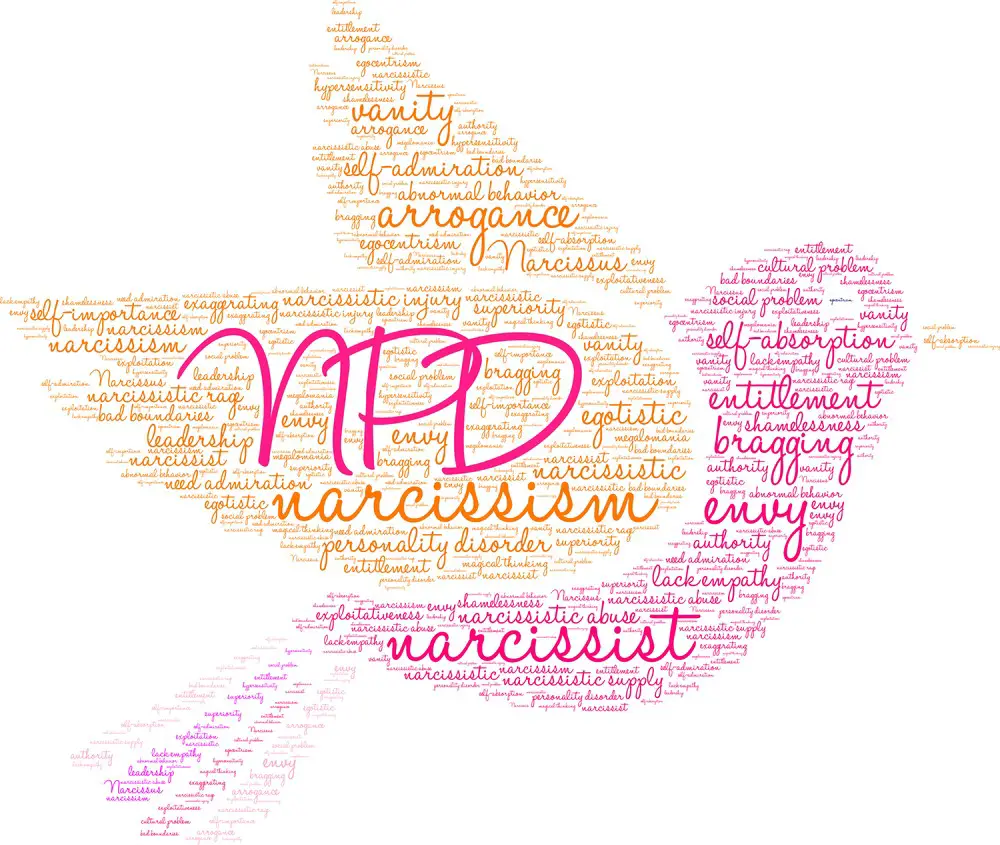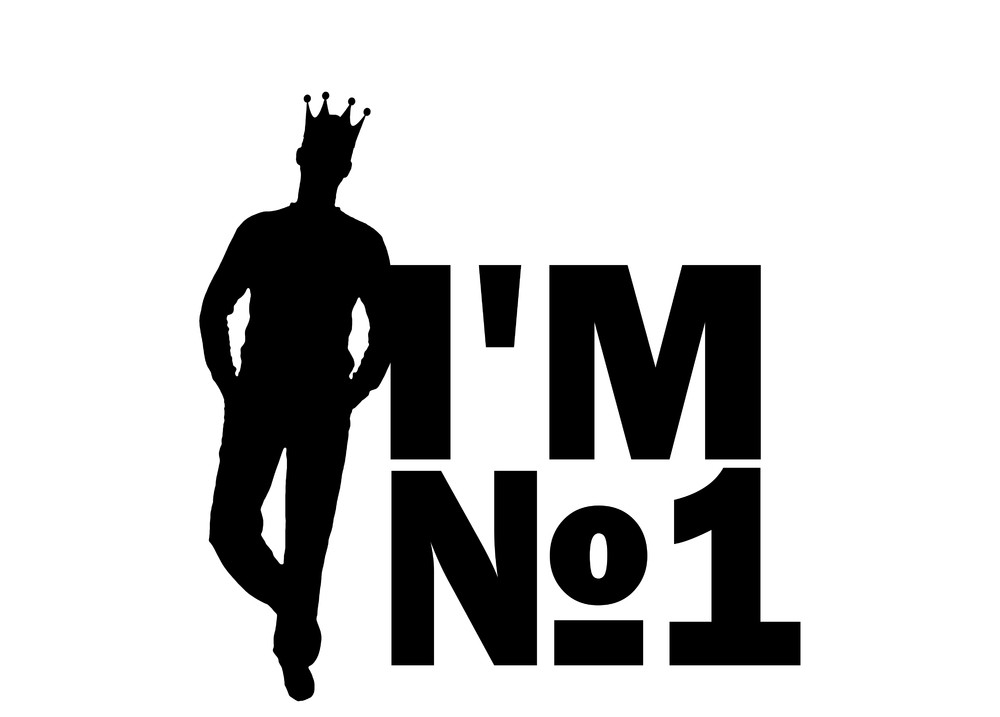As a BetterHelp affiliate, we receive compensation from BetterHelp if you purchase products or services through the links provided
Narcissistic personalities often exhibit complex victim-playing behavior to manipulate others and gain attention. This unhealthy dynamic involves a series of tactics designed to evoke sympathy, solidify their control, and divert attention from their harmful actions. It is crucial to recognize these patterns for the narcissist’s well-being and the protection of those affected by their behavior.
Individuals with Narcissistic Personality Disorder (NPD) demonstrate an exaggerated sense of self-importance, lack of empathy, and constant need for admiration. When they manipulate others by playing the victim, these qualities intensify, disrupting relationships and leading to emotional turmoil for themselves and those around them. Understanding these tactics and navigating the intricacies of narcissistic victimhood is essential for the mental health of the narcissist and their loved ones.
Key Takeaways
- Narcissistic individuals may use victim-playing tactics to manipulate and control others.
- Recognizing these patterns is important for emotional well-being and healthy relationships.
- Both narcissists and their victims may benefit from seeking professional help to manage these situations effectively.

Narcissist Playing Victim: Overview
Victim Mentality
Narcissists often employ a victim mentality to manipulate and control relationships. Narcissists can shift blame, garner sympathy, and avoid accountability by portraying themselves as victims. They may weave intricate lies to play the victim, drawing attention to themselves and away from their behavior.
In relationships, a narcissist may falsely accuse their partner of wrongdoing, claiming to be the injured party. This tactic allows the narcissist to maintain control and diminish their partner’s self-esteem. Understanding this behavior is crucial to recognizing and addressing narcissism in relationships.
Symptoms of Narcissistic Victim Syndrome
Narcissistic Victim Syndrome (NVS) is a term used to describe the impact on those subjected to a narcissist’s manipulative tactics. Individuals suffering from NVS may exhibit the following symptoms:
- Confusion: Victims often struggle to understand the reality of their situation, as the narcissist’s lies and manipulation can make it difficult to discern truth from fiction.
- Low self-esteem: The narcissist’s constant criticism and blame can cause the victim to doubt their worth and abilities.
- Depression and anxiety: Prolonged exposure to the narcissist’s manipulation can lead to feelings of hopelessness and persistent anxiety.
- Feelings of guilt: Narcissists may make victims feel responsible for their suffering, leading to guilt and self-blame.
- Difficulty trusting others: After experiencing the deceit of a narcissist, victims may find it challenging to trust others, even those who are genuinely supportive.
Recognizing these symptoms can help victims, and their support networks identify and address narcissistic abuse, enabling them to heal and move forward.
Narcissistic Personality Disorder
Characteristics of NPD
Narcissistic Personality Disorder (NPD) is a mental health condition characterized by an inflated sense of self-importance, a deep need for attention and admiration, and a lack of empathy for others. Individuals with NPD often have an excessive fixation on their appearance and achievements. They may also engage in manipulative and controlling behaviors to maintain their self-image and keep others under their control.
In relationships, individuals with NPD may frequently play the victim, using tactics such as lying, gaslighting, or accusing others of wrongdoings to gain sympathy or attention. This behavior can lead to the alienation of friends, family, and romantic partners, leaving the narcissistic individual feeling alone and resentful.

Diagnosis
Diagnosing NPD can be challenging for mental health professionals, as the disorder’s symptoms can overlap with other conditions such as bipolar disorder, borderline personality disorder, and antisocial personality disorder. To accurately diagnose NPD, a mental health professional will typically:
- Conduct a thorough psychological evaluation
- Assess the individual’s medical history and rule out other potential causes
- Evaluate the individual’s behaviors, motivations, and patterns of interaction with others
The Diagnostic and Statistical Manual of Mental Disorders (DSM-5) criteria for NPD are:
- A consistent pattern of grandiosity, need for admiration, and lack of empathy, as evidenced by at least five of the following traits:
- An exaggerated belief in their importance or abilities
- Fantasies of unlimited success, power, brilliance, or beauty
- Believing they are special or unique and can only be understood by or associated with similarly exceptional people
- A need for excessive admiration and validation
- A sense of entitlement and expectation of preferential treatment
- Exploitative behavior, using others for their gain or to maintain their self-image
- A lack of empathy and inability or unwillingness to recognize the feelings and needs of others
- Frequent envy or belief that others are envious of them
- An arrogant or haughty attitude toward others

Manipulation Tactics in the Context of Victimhood
Gaslighting
Gaslighting is a common tactic used by narcissists to manipulate their victims. It involves altering or denying the reality of the situation, making the victim question their thoughts and feelings. This creates a sense of confusion and self-doubt, allowing the narcissist to maintain control. They might exaggerate or fabricate stories to gain sympathy and portray themselves as victims. As the victim begins to doubt their perceptions, the narcissist can more easily shift blame and responsibility onto others.
Triangulation
Triangulation is another manipulation tactic employed by narcissists. They may use this method to create conflicts or tension between people, often to isolate their target. This might involve spreading rumors, pitting friends against each other, or even trying to form alliances with others against the victim. The narcissist creates a sense of entitlement through this tactic and justifies their abusive behavior. By fostering a competitive environment, they can redirect any potential rage or negative emotions directed at themselves onto others in the triangle.
Projection
Projection is a defense mechanism commonly employed by narcissists. They may project their undesirable traits, such as entitlement, manipulation, or abusive tendencies, onto their victims. By accusing their target of these behaviors, the narcissist can gain a sense of sympathy and moral superiority, diverting attention away from their actions. This tactic allows them to maintain an image of victimhood and establish a narrative that places them at the center of sympathy and attention.
The Blame Game
Blame-Shifting
Narcissists are known for their tendency to avoid responsibility for their actions. They often shift the blame on others, even for the most minor inconveniences. This can be frustrating and difficult for those around them, as they must navigate the narcissist’s efforts to create a narrative that justifies their behavior. By deflecting responsibility, they maintain their self-image and often manipulate others into feeling guilty or at fault.
In an attempt to maintain control over a situation, narcissists may resort to tactics like:
- Accusing others of causing their problems
- Minimizing their actions while exaggerating the impact on others
- Twisting facts to fit their narrative
- Projecting their anger onto others
Denial
Denial is another common characteristic of narcissistic behavior. They often dismiss the truth when faced with the consequences of their actions or memories of past events. This allows them to construct a more favorable version of reality in which they are not responsible for any wrongdoing.
Some examples of denial in the context of narcissism might include:
- Denying any negative behavior or pretending it never happened
- Preserving their positive self-image by rejecting any criticism
- Rationalizing inappropriate behavior as necessary or justified
Denial and blame-shifting can operate simultaneously in narcissistic individuals, effectively reinforcing their warped perception of reality. This approach frequently perpetuates their cycle of manipulative behavior, making it challenging for others to maintain healthy relationships with them.

Effects on and Dynamics within Relationships
In relationships involving a narcissist, serious consequences can often lead to toxic and dangerous dynamics. The narcissist’s tendency to play the victim profoundly impacts those around them, particularly regarding their close relationships.
Relationship with Empaths
Empaths are individuals who possess high levels of empathy and can deeply feel the emotions of others. In some cases, empaths may find themselves drawn to narcissists. This is because empaths often desire to help those in need, and the narcissist may appear vulnerable or need support. However, this dynamic can quickly become draining for the empath as the narcissist repeatedly plays the victim role, evading accountability and potentially engaging in emotional abuse.
The empath may become entangled in the narcissist’s web of manipulation, constantly trying to appease the narcissist and meet their needs. This can compromise the empath’s emotional well-being, as they may become increasingly frustrated and overwhelmed by the relationship.
Setting Healthy Boundaries
Establishing and maintaining healthy boundaries is crucial when interacting with a narcissist, especially if they are prone to playing the victim. These boundaries can help protect oneself from falling into a continuous cycle of catering to the narcissist’s needs while neglecting one’s own.
Some strategies to set healthy boundaries include:
- Communicate clearly: Express thoughts and feelings openly and honestly with the narcissist, establishing expectations for respectful and fair treatment.
- Establish limits: Define the limits of acceptable behavior and hold the narcissist accountable when they push or breach those boundaries.
- Assert independence: Maintain a sense of autonomy and self-worth by participating in activities and relationships outside of the relationship with the narcissist.
- Seek support: Reach out to friends, family members, or professionals who can provide guidance, validation, and encouragement in setting and maintaining healthy boundaries with the narcissist.
By implementing these strategies, those involved in relationships with narcissists can work towards establishing a more balanced and healthy dynamic.
Additional Tips and Strategies
Confronting a narcissist’s behavior can be incredibly difficult, but there are ways to manage it while maintaining self-respect and emotional health. Some tips and strategies may include:
• Remain firm: Maintain healthy boundaries and do not give in to unreasonable demands or manipulation tactics.
• Stay focused on the present: Avoid getting drawn into discussions about the past and address current issues.
• Take time for yourself: Spend time with others who can provide positive support, drawing strength from their presence.
• Validate your feelings: Acknowledge your own emotions, validating them as real rather than attempting to ignore or suppress them out of guilt or fear.
• Seek professional help: Confronting a narcissist’s behavior can be incredibly difficult, but there are ways to manage it while maintaining self-respect and emotional health.
Seeking Help for the Narcissists and Their Victims
Therapy Options
Therapy can be crucial to addressing the emotional well-being of narcissists and their victims. A qualified therapist can help narcissists gain self-awareness, manage narcissistic rage, and develop a healthier sense of self. It can also guide victims in cultivating emotional resilience and setting healthy boundaries.
Individuals can opt for cognitive-behavioral therapy (CBT), which targets thinking and behavior patterns to help promote emotional well-being. Another option is dialectical behavior therapy (DBT), which focuses on emotional regulation and interpersonal skills, particularly valuable for victims dealing with the effects of a narcissist’s behavior.
The chosen therapist must be experienced in dealing with narcissistic personality disorder and related issues, ensuring they can properly facilitate progress for both parties.
Support
In addition to therapy, seeking support from external sources can be invaluable for both the narcissist and their victims. This may include:
- Support groups: These forums, both online and in-person, provide a confidential space for discussing experiences, challenges, and coping strategies. They help individuals feel less isolated and validate their feelings.
- Family and friends: A strong support network can be pivotal in building resilience and maintaining emotional well-being while navigating the complexities of a relationship with a narcissist.
- Educational resources: Books, articles, and workshops can provide insight into narcissistic personality disorder and offer methods for managing its consequences effectively.
It is crucial for the parties involved to recognize that support is necessary for addressing the challenges associated with narcissistic behavior effectively. Both narcissists and their victims will benefit immensely from engaging with available resources and seeking help to improve their emotional well-being.
Conclusion
Narcissistic individuals often play the victim role in manipulating and exploiting others’ empathy. Using tactics like gaslighting, emotional manipulation, and passive-aggressiveness, they seek sympathy and validation, even when they are the instigators of the conflict.
Recognizing these tactics and developing healthy boundaries is crucial to avoid falling for the narcissist’s victim act. One must trust their intuition and seek external support from friends or professionals if needed, as navigating these relationships can be challenging.
Ultimately, awareness of these behaviors and taking necessary precautions can help prevent emotional entanglement with a narcissist and safeguard one’s mental well-being.
Frequently Asked Questions
Why do narcissists play victim?
Narcissists play the victim to gain sympathy, control, and attention from others. This tactic, called “victim-playing,” helps them to manipulate situations and people for their benefit. By acting as if they are suffering or being treated unfairly, narcissists can elicit a sense of guilt or obligation from those around them, making it easier for them to get their way.
How can I deal with a victim-playing narcissist?
Dealing with a victim-playing narcissist can be challenging. Some strategies to handle such situations include:
- Setting boundaries: Establish and maintain personal boundaries to protect yourself from their manipulation.
- Detaching emotionally: Avoid getting involved or feeling responsible for their alleged problems.
- Verification: Fact-check their stories and claims to prevent being misled.
- Avoid feeding their ego: Do not offer exaggerated praise or sympathy.
- Seek support: Contact friends, family, or a therapist to discuss your experiences and gain additional insights.
What is narcissistic victim syndrome?
Narcissistic Victim Syndrome (NVS) is a term used to describe the emotional and psychological effects that being in a relationship with a narcissist may cause. The constant manipulation, gaslighting, and emotional abuse can leave victims feeling disoriented, worthless, and doubting their own perceptions and emotions.
Are there signs of narcissistic victim syndrome?
Yes, there are several signs of Narcissistic Victim Syndrome. Some of these include:
- Self-doubt: Victims may question their perceptions or reality.
- Low self-esteem: They may feel worthless, unimportant, or inferior.
- Anxiety and depression: Extended periods of emotional abuse can lead to mental health issues.
- Isolation: Victims may withdraw from friends and family.
- A sense of guilt: They might feel responsible for the narcissist’s problems or happiness.
How does a covert narcissist act as a victim?
A covert narcissist, also known as a “vulnerable” or “introverted” narcissist, displays a more subtle pattern of narcissistic behavior. These individuals still seek attention and admiration but may do so by playing the victim. They often claim to be misunderstood, mistreated, or emotionally humiliated. This enables them to elicit sympathy or concern from others to control them or receive validation.
Can narcissistic mothers play victim too?
Yes, narcissistic mothers can also play the victim. This behavior might involve exaggerating or fabricating negative experiences, blaming others for their difficulties, or using guilt and manipulation to control their children. This can impact the child’s self-esteem, emotional well-being, and relationships with others.
- Breaking the Silence: Why Men’s Mental Health Matters More Than Ever - April 15, 2025
- How to Transform a Home’s Patio Space into a Relaxing Space - March 23, 2025
- 5 Strategies to Use a Cell Phone to Help Manage Your Stress - March 23, 2025
This site contains affiliate links to products. We will receive a commission for purchases made through these links.



